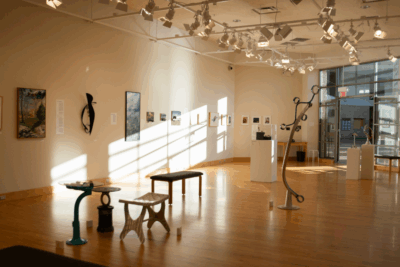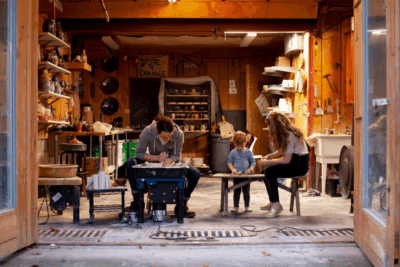Almost 20 years ago, Seattle playwright Barbara Lindsay had an idea: a former freedom fighter summoned back into action.
Many years and several iterations of the story later, Lindsay is now the 2020 winner—and the only second-time honoree—of the Goshen College Peace Play Contest.Lindsay is an award-winning playwright and actor from Santa Monica, California, currently settled in Seattle with her husband.
Her plays and monologues have been performed worldwide and in over 30 states, though Lindsay says she never intended to become a professional playwright.
She wanted to become a theatrical actress and only began writing while studying as a theater major at the University of California, Riverside, where she worked to create short scenes for her and her fellow actors to perform.
But she soon found the ideas wouldn’t stop coming, and in 1989, her first full-length play won her the New York League’s playwriting competition.
In 2007, Lindsay submitted a one-act play to the Goshen College Peace Play Contest, a biennial playwriting competition where playwrights around the country submit one-acts concerning “a contemporary peace theme.”
Although she doesn’t fully remember how she heard about the competition, she said she immediately fell for the concept.
“I love the idea of a peace play prize,” Lindsay said. “I’ve actually submitted to it quite a few more times than the two that I’ve been accepted because I believe in this.”
In 2008, Lindsay won first place with her play, “Here to Serve You,” which uses comedy to examine the effects of 9/11.
Despite “Here to Serve You” being her first win, the inception of “Heavenly Light” came years before in the mid-1990s. It was during an episode of what Lindsay calls her “writer’s deluge” that Lucinda Celeste, the play’s protagonist, began speaking to her.
Lindsay describes “Heavenly Light” as her “most political play.” The story surrounds Lucinda who is a “freedom fighter” from the distant future.
While “Here to Serve You” used comedy to create “farcical” distance between the audience and the difficult subject matter, “Heavenly Light’’ is direct with themes that evolve in meaning.
For example, Lindsay never could have anticipated the connections between the play’s “blue germ” and the COVID-19 pandemic.
As the significance of the themes has changed over the years, so has the “Heavenly Light” in the form of three iterations. First came a 72-page play, I-2195, that won the Women in the Arts Award Tim Jacob Landis performs in Lindsay’s first peace play, “Here To Serve You,” in 2008. at the University of Missouri, St. Louis. Next came “Possum,” another full-length play, but with a completely reworked script and character list. Finally, she felt called to take her original 72-page play and cut it down to 42 pages, short enough to be eligible for the Peace Play Contest.
What resulted is maybe “the cleanest, purest version of the story,” Lindsay said. While she can appreciate a play that takes its time, she says that “Heavenly Light” is “like a diamond: it comes out of compression. . . this is the diamond version.”
This “diamond” version was then submitted to the Peace Play Contest after several unsuccessful attempts. She received an email on June 30, 2020, from Doug Caskey, the previous chair of the Goshen College theater department, informing her of her first-place win.
Due to the effects of COVID-19, Goshen will have to wait to see the debut of “Heavenly Light.” In the fall of 2021, when there won’t be another Peace Play Contest, the play is more likely to have a safe emergence on campus.
While Goshen College waits for “Heavenly Light,” members of the community can still experience Lindsay’s work. During the college’s virtual homecoming weekend, performances of past Peace Play winners, including Lindsay’s first winning piece, “Here to Serve You,” will be streamed.
When “Heavenly Light” does meet audience eyes, Lindsay hopes that the GC community will think about their mothers and the power of their unified voices.
Lindsay said that she wants to remind audiences, “Don’t be so afraid of the consequences. If we only do things that look safe, then nothing is ever going to happen, and we’re never gonna grow. If we’re willing to take the consequences, we can do anything.”


